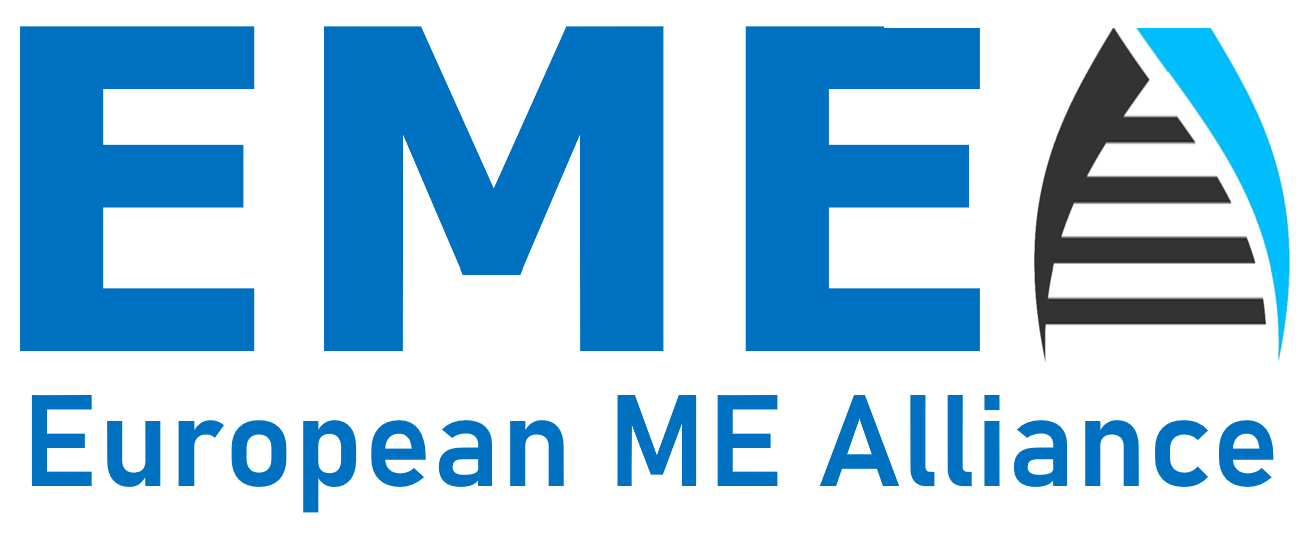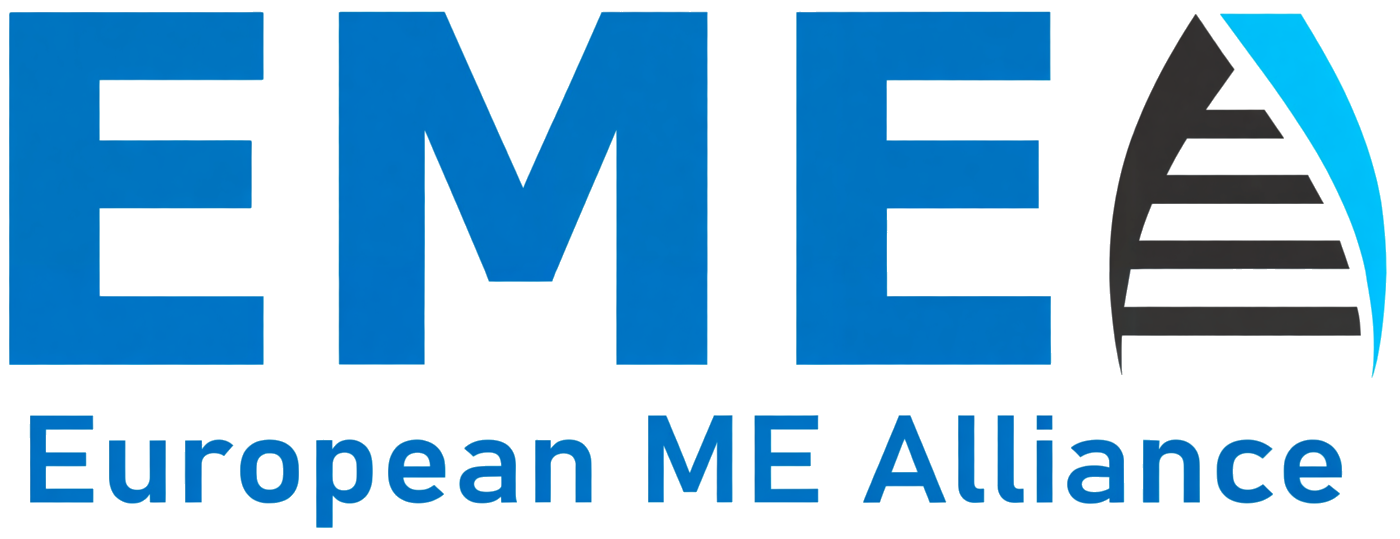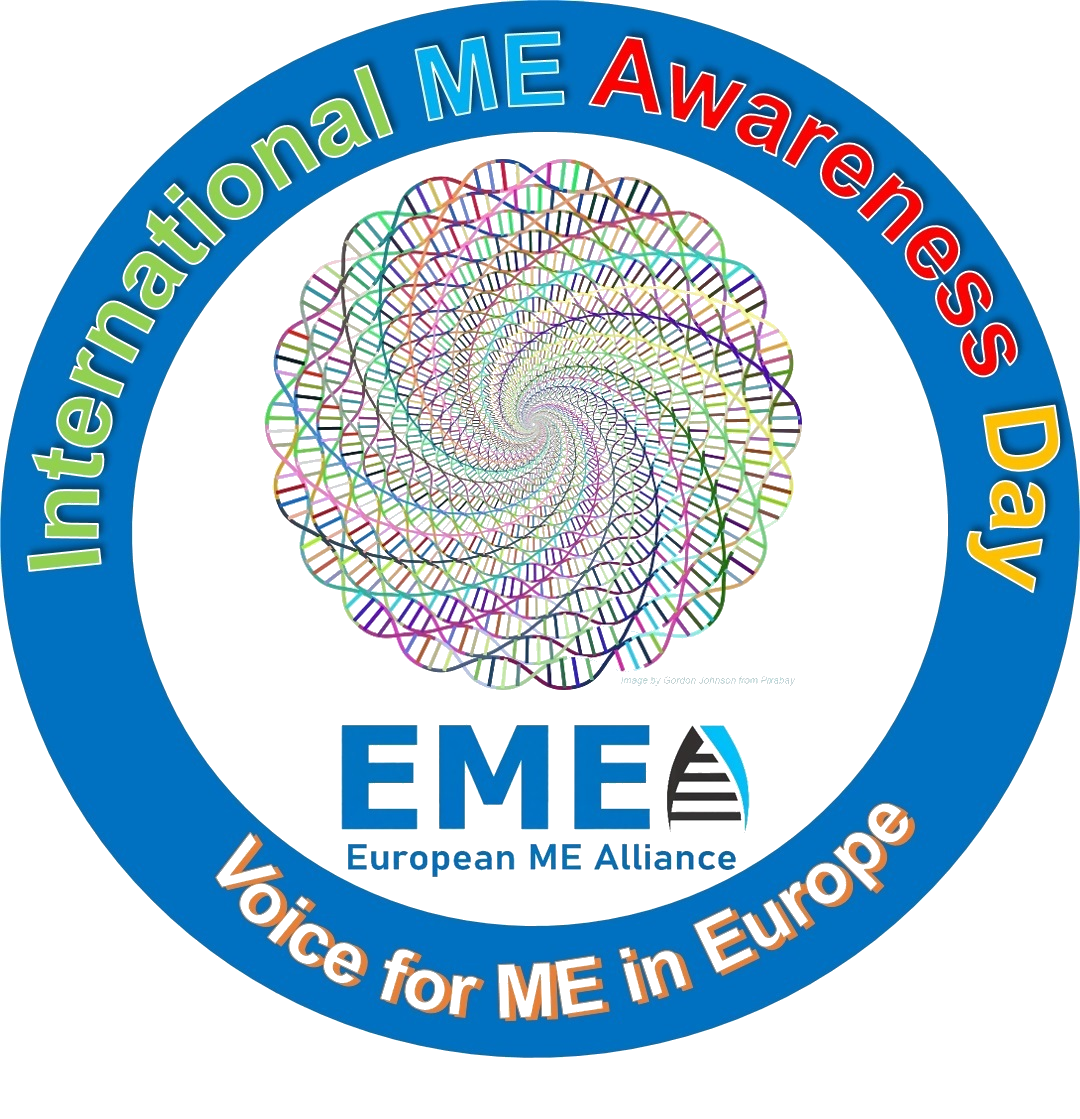“Despite mounting evidence, healthcare systems continue to overlook ME/CFS as a serious physical illness, failing to provide adequate medical care, financial support, and social services. Incomprehensibly, it is not even recognised in some European countries despite it being listed under the World Health Organization’s ICD Codes, ICD-10 G93.3 and (later) ICD-11 8E49 as a neurological condition since 1969.”

International ME Awareness Month
EMEA News for 12 May
Annually, 12 May is celebrated as International Awareness Day for Myalgic Encephalomyelitis (ME or ME/CFS as it is known in some countries). To commemorate this occasion, the European ME Alliance (EMEA) and its members have produced the video above with texts both in English and the native country’s language. As a community of patient support groups, we are hosting events all over Europe to raise awareness of ME/CFS as a devastating disease, causing ‘millions of people to be missing’ from school, from work and from everyday activities. This is a direct result of the ‘millions missing’ in government funding for biomedical research to enable EMEA’s existing international network of researchers and clinicians (European ME Research Group (EMERG) and Young EMERG) to identify a biomarker for the disease along with curative treatments.
Despite being recognised as a disease of the neurological system by the World Health Organization since 1969, in some countries ME/CFS is still believed to be a psychological illness where patients are prescribed treatments that can be harmful to them (e.g. Cognitive Behavioural Therapy or Graded Exercise Therapy), or it is believed to be a fictitious illness that does not exist, and patients are abandoned and told ‘it’s all in your head’, which denies them a diagnosis and access to adequate medical, financial and social services.
The results from our recent EMEA Pan-European ME Survey in which over 11,000 patients participated, confirms that health care systems are failing patients. Based on our survey results and decades of lived patient experiences, EMEA is urgently calling for the actions below at the national and European levels:
Action 1
EMEA urges all European countries to take immediate action in addressing Myalgic Encephalomyelitis and recognise ME/CFS as a somatic illness, as defined by the World Health Organization (WHO). ME/CFS requires standardised diagnosis and treatment protocols. It is imperative that all European governments swiftly adopt and implement WHO International Classification of Diseases (ICD) codes specific to ME/CFS within their healthcare systems.
Action 2
EMEA urges a pan-European strategy of coordinated, collaborative biomedical research to be initiated across Europe, by all governments, using established or developing Centres of Excellence for ME. These centres would be adequately funded and perform translational biomedical research that will look at developing a full understanding of the disease and development of effective treatments to mitigate or cure the disease.
Action 3
EMEA urges all European countries to take decisive action in establishing a specialist discipline for ME/CFS by creating academic consultant roles dedicated to ME/CFS and establishing at least one specialist clinical centre aligned with centres of excellence. Recognising the dangerously insufficient awareness and knowledge of ME/CFS, leading to misdiagnosis, missed diagnosis, or very late diagnosis (with an average delay of 6.8 years across Europe), concerted efforts are needed to include the latest scientific evidence on ME/CFS in medical curricula. Academic consultant roles specialising in ME/CFS would play a pivotal role in this effort, providing expertise and guidance to ensure the integration of ME/CFS education and research into medical curricula while utilising standardised diagnostic and treatment protocols for ME/CFS.
Action 4
EMEA urges the EU to initiate a pan-European effort to implement accurate and correct recording of cases of ME/CFS, utilising the most up-to-date diagnostic criteria. This is crucial for understanding the full economic burden of the disease. As demonstrated in previous EMEA 'ME/CFS in Europe' webinars, EMEA has highlighted the feasibility for all European countries to implement SNOMED CT to record properly occurrences of ME/CFS, facilitating accurate prevalence figures. EMEA welcomes the opportunity to collaborate with EU institutions, European governments, and other stakeholders, leveraging the data of the EMEA pan-European survey, to ensure a thorough evaluation of ME/CFS prevalence and its economic ramifications.



